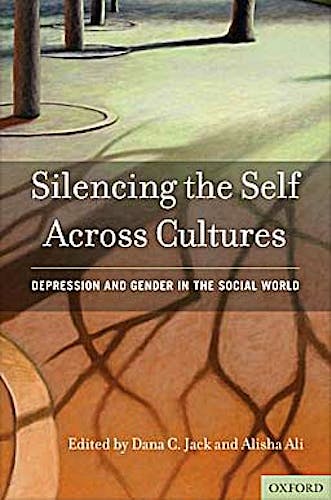

No hay productos en el carrito



Silencing the Self across Cultures. Depression and Gender in the Social World
Jack, D. — Ali, A.
1ª Edición Mayo 2010
Inglés
Tapa dura
568 pags
1500 gr
16 x 24 x null cm
ISBN 9780195398090
Editorial OXFORD USA
LIBRO IMPRESO
-5%
92,44 €87,82 €IVA incluido
88,88 €84,44 €IVA no incluido
Recíbelo en un plazo de
2 - 3 semanas
ABOUT THIS BOOK
- Broadens the dialogue regarding theory, research, and treatment of women's depression by including the perspectives of international authors in one volume. An international response is needed for an international epidemic: This book offers a strong, clear paradigm to further national and international discussion and investigation. Professionals, policy makers, educators, therapists, students and depressed women themselves will gain an understanding of women's depression in their own society and within the perspective of the larger, international context.
- Elucidates a theory regarding gender difference in rates of depression which ties social factors attached to women's social inequality directly to cognitive schemas that direct women's behaviors and self-evaluation. Additionally, the book contributes an international examination of women>'s depression from this one theoretical perspective which is applied across a variety of disciplinary vantage points and across radically differing cultures. By positioning their examinations of these schemas within varying cultural contexts, the contributors explore how an integrative theoretical stance such as Silencing the Self enhances the cross-cultural understanding of women>'s depression.
- Recognizing the complexity of depression, Silencing the Self Across Cultures situates self-silencing theory within larger frameworks, examining other models for women's depression and incorporating important approaches, such as cognitive, behavioral, neurological and biomedical perspectives into the cultural model.
- Addresses the significant difficulties accompanying research into culture and depression while, at the same time, we provide a theory and methodology through which to conduct investigations. In addition to quantitative data, authors use qualitative data DS women's words and case studies - to illustrate conceptual equivalence of the measure and their findings across cultures.
This international volume offers new perspectives on social and psychological
aspects of the complex dynamic of depression. The twenty-one contributors from
thirteen countries - Australia, Canada, Finland, Germany, Haiti, India, Israel,
Nepal, Poland, Portugal, Puerto Rico, Scotland, and the United States - represent
contexts with very different histories, political and economic structures, and
gender role disparities.
Authors rely on Silencing the Self theory, which details the negative psychological
effects when individuals silence themselves in close relationships and the importance
of the social context in precipitating depression. Specific patterns of thought
about how to achieve closeness in relationships (self-silencing schema) are
known to predict depression. This book breaks new ground by demonstrating that
the linkage of depressive symptoms with self-silencing occurs across a range
of cultures. We offer a new view of gender differences in depression situated
in the formation and consequences of self-silencing, including differing motivational
aims, norms of masculinity and femininity, and the broader social context of
gender inequality.
The book offers evidence regarding why women's depression is more wide-spread than men's and why the treatment of depression lies in understanding that a person's individual psychology is inextricably related to the social world and close relationships. Authors examine not only gender differences in depression but also related aspects of mental and physical illness, including treatments specific to women. Several chapters describe the transformative possibilities of community-driven movements for disadvantaged women that support healing through a recovery of voice, and describe the need for systemic and structural changes to counter violations of human rights as a means of reducing women's risk of depression. Bringing the work of these researchers together in one collection furthers international dialogue about critical social factors that affect the rising rates of depression around the globe.
Readership: This multidisciplinary, multinational volume will be of interest to a wide range of readers. It will be adopted in classes for upper division undergraduates and advanced students in such fields as psychology, psychiatry, women's health, international health, nursing, anthropology, cross-cultural psychology, social work, women's studies, sociology, gender studies, and race studies. In addition to academicians and clinicians, the intended audience also includes mental health experts and practitioners, researchers, policy planners, NGOs, and governmental mental health agencies. One section of the book presents clinical interventions; thus we are certain that clinicians will use the book as a reference to guide their clinical practice, including work with immigrant clients and groups. Finally, because the book is written in accessible, interesting language, we anticipate that a general audience interested in depression in women around the globe will buy the book.. We are certain that this volume will attract a significant international readership.
© 2025 Axón Librería S.L.
2.149.0